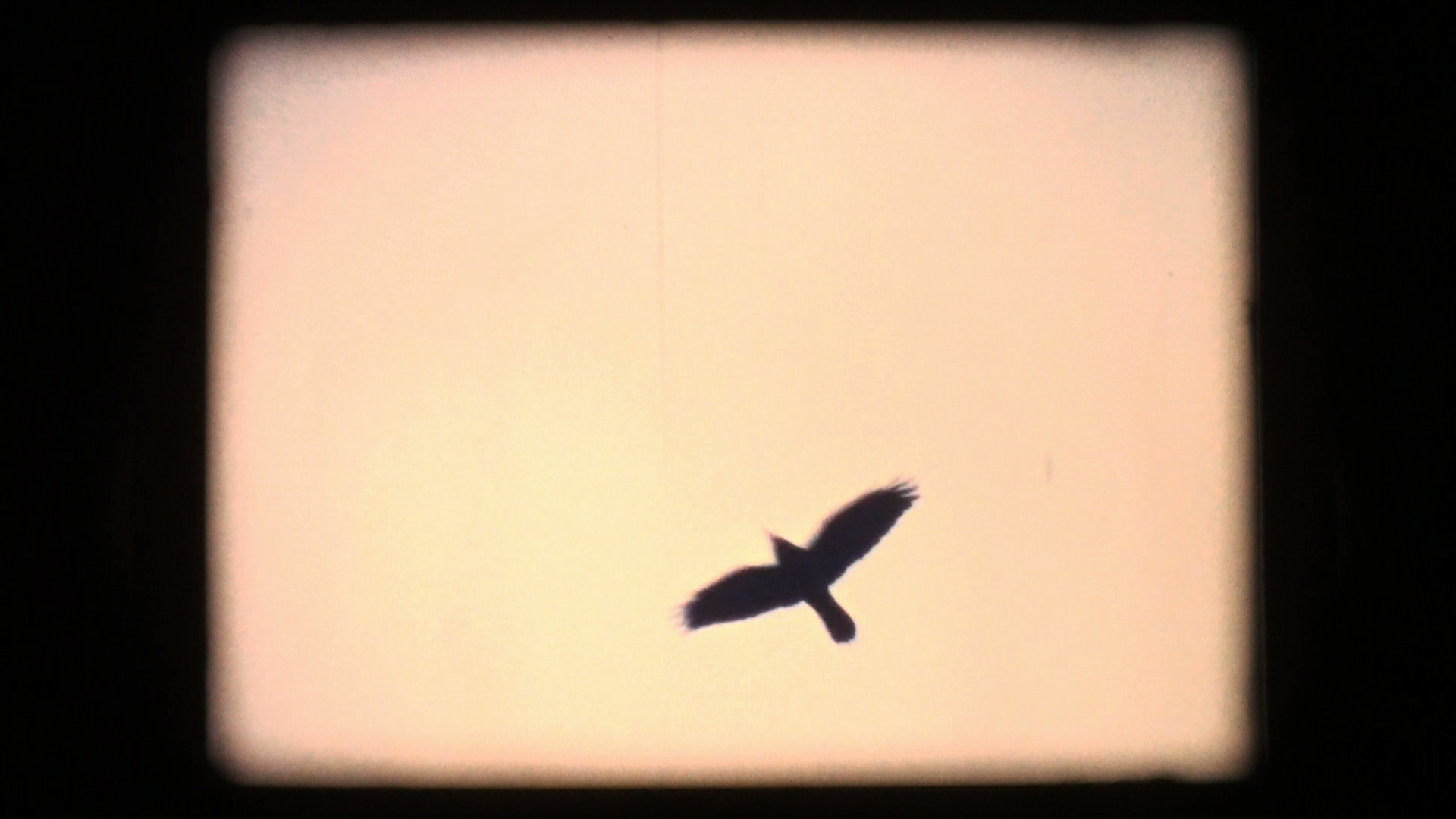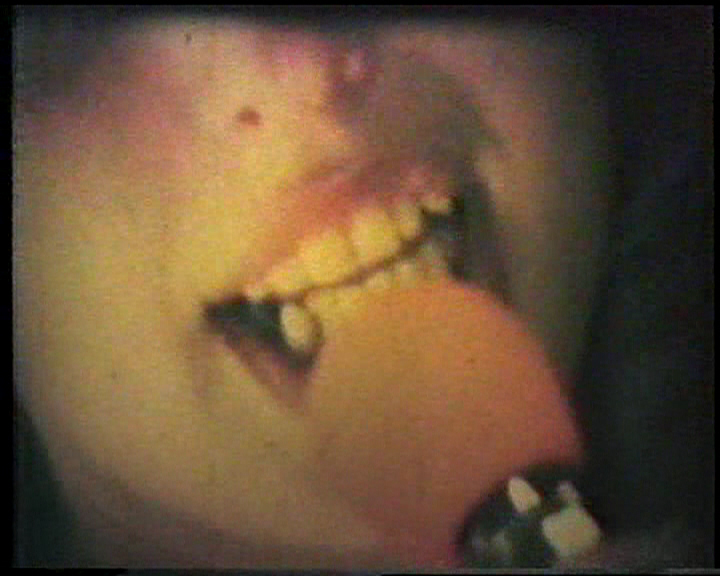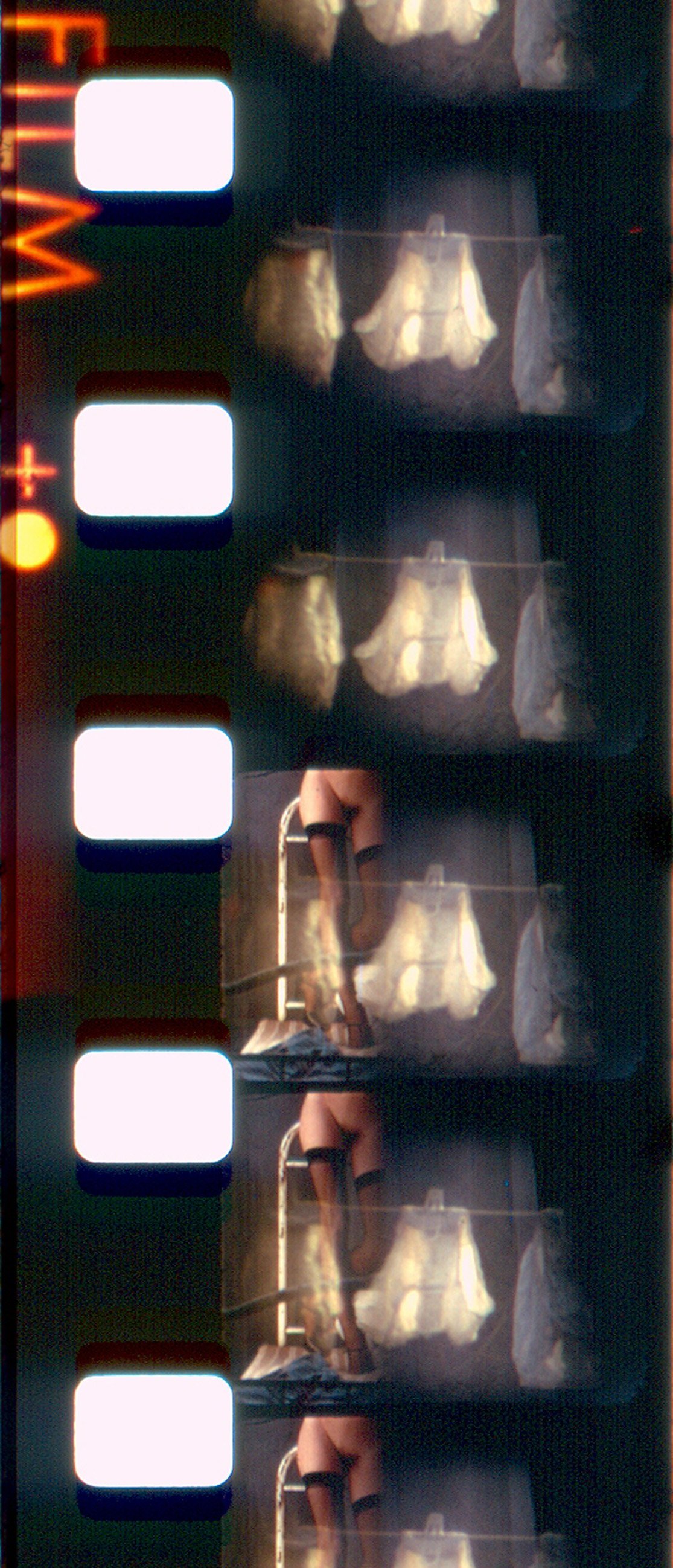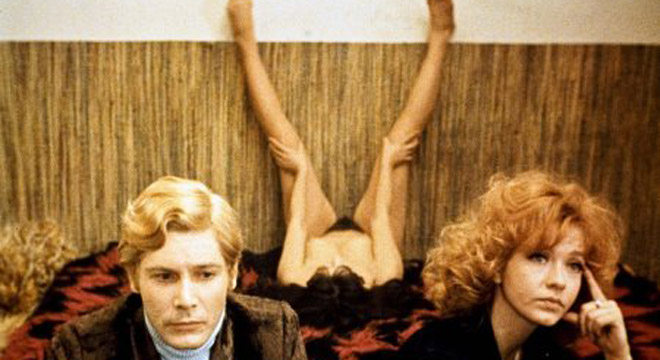Night of the Underground - The Ex-Yugoslav Kino Clubs (and Beyond)
Do 30.05. 21:00h Festivalzentrum
neue Zeit! Beginn schon um 21:00h
Jugoslawisches Kino ist reich an «underground spirit», Beispiele zu finden ist leicht. Eine Herausforderung ist es lediglich aus ihnen auszuwählen: So viele exemplarische Filmemachende und filmischen Tendenzen aus einer Zeit, als dieses Land noch existierte und alternatives Kino produzierte. Die offensichtlichste Wahl wären Filme der Black Wave gewesen, das tönt bereits nach Underground. Wir entschieden uns aber für ein anderes Phänomen – eines, das vielleicht historisch nicht so gewichtig, aber eigentlich fast bedeutender war.
Die vom Staat finanzierten Jugoslawischen Filmklubs, genannt Kino Clubs, entstanden in den späten 1940ern und sollten bald zum Katalysator für cineastische Experimente und zur Herausforderung an kommerzielle Ästhetik und Ideologie werden. Sie waren Sprungbrett nicht nur für experimentierfreudige Filmemacher_innen sondern auch für die grossen Regisseur_innen des landesweiten Underground- und Oppositionskinos. Während vieler Jahrzehnte schlugen die Kino Clubs kleine und grössere Wellen in verschiedenen Farben, nicht nur in schwarz. Der grosse Dusan Makavejev begann seine Kariere in einem dieser Kino Clubs, und sein legendärer Film W.R. Die Mysterien des Organismus wird in diesem Programm gezeigt – nicht nur als Beispiel dieser Bewegung sondern auch als Erinnerung daran, wie weltoffen die Sozialistische Föderative Republik Jugoslawien in den 1960ern und 1970ern war.
Das Programm bietet zudem die seltene Gelegenheit, zwei der am wenigsten bekannten Helden des Jugoslawischen Experimentalfilms im Originalformat zu entdecken: Ljubomir Simunic und Davorin Marc. Marc wird VIDEOEX besuchen und erzählen, wie es für einen nicht-professionellen Filmemacher in den späten 1970ern und frühen 1980ern in Jugoslawien möglich war, mehr als 150 Filme zu produzieren. Dies ist das erste Screening seiner Filme ausserhalb von Jugoslawien. Die gleichermassen seltene Vorstellung von vier Werken Simunic’, der mit den Kino Clubs in Kontakt stand, aber privat produzierte, wirft eine weitere Frage in den Raum: Wenn technisch und konzeptuell raffinierte Filmexperimente wie diejenigen von Simunic fernab der Strukturen von Kino Clubs gemacht wurden, wie gross ist dann das Ausmass an filmischen Überraschungen, die dieses Land uns noch vorenthält? Dann erhalten wir Eintritt in einen der noch existierenden Clubs dieser Ära, das Akademski Filmski Centar. Seit vielen Jahrzehnten setzt AFC als eine der wichtigsten Organisationen seine Arbeit fort und ermöglicht sowohl die Produktion von als auch die Auseinandersetzung mit Kino Club-Filmen. Ohne die Bemühungen von seinem Leiter Miodrag Milosevic und seinen Kolleg_innen wäre es sehr schwierig gewesen, Filmemacher wie die zwei oben erwähnten ausfindig zu machen. Milosevic wird das Festival besuchen mit einem Programm von zeitgenössischen Werken aus Serbien, die im AFC Kino Club gemacht wurden.
Vassily Bourikas ist Filmschaffender, Kurator and Mitbegründer des LabA (Labor Athens).
With a focus on Yugoslavian cinema it is not hard to find enough examples of true Underground spirit. But it was hard to choose one out of so many options of films, exemplary filmmakers and cinematic tendencies from a time when that country existed and produced alternative cinema. And if the most obvious choice was the underground-sounding Black Wave we decided to throw the spotlight on another phenomenon, one that was even less historicized but arguably even more important. The state funded Yugoslav film-club (Kino Club) platforms emerged in the late 1940s and were soon to become a catalyst for cinematic experimentation and the challenging of mainstream aesthetics and ideas. They became a springboard not only for experimental filmmakers but also for the great directors of the country's Underground and oppositional cinema. For many decades the Kino clubs made waves and ripples and these had a lot of colors, not just Black. The great Dusan Makavejev began his career at such a Kino Club and his legendary film WR, Mysteries of the Organism is presented here, not only as an example of this development but also as a reminder of how cosmopolitan the Socialist Federal Republic of Yugoslavia was in the 1960s and 70s.
On a different tone this Night of the Underground will give us the rare opportunity to discover two of the most unsung heroes of Yugoslav experimental film, Ljubomir Simunic and Davorin Marc, through the full splendor of their original prints. Marc will attend VIDEOEX and explain how it was possible for a non professional filmmaker in late 70's and early 80's Yugoslavia to produce over 150 films. This is the first screening of his films out of Yugoslavia. The equally rare presentation of four works by Simunic, who interacted with the Clubs but produced privately, poses another question: if technically and conceptually elaborate film experiments, such as his , were made even outside the Kino Club structures then what is the extent of filmic surprises this country still holds in stock for us?
Finally we will be properly introduced to one of the few still existing clubs of that era, the Akademski Filmski Centar. For many decades the AFC continues its work as one of the most important organizations that facilitates both production and study of Kino Club cinema. Without the efforts of its director Miodrag Milosevic and his colleagues it would have been very hard for any researcher to discover filmmakers such as the two mentioned above. Milosevic will attend the festival to inform us on the past but to also explain the present, through a program of contemporary works from Serbia, still made at the AFC Kino Club.
Vassily Bourikas is a filmmaker, film curator and co-founder of LabA (Laboratory Athens).

New experimental film in Serbia
Kuratiert von Miodrag Milošević.
Experimentalfilmer_innen in Serbien, Kroatien und Slowenien beschäftigten sich intensiv mit ästhetischer und formaler Exploration bis zum Zerfall Jugoslawiens. Festivals wie GEFF in Zagreb, MAFAF in Pula, SABOR in Split und ALTERNATIVA in Belgrad inspirierten viele, Film als Medium zu entdecken. In Serbien bezog sich Experimentalfilm in den 1950/60ern vorerst auf französische Avantgarde und Surrealismus wandte sich dann den Erneuerungen des strukturalistischen Films zu. Nach dem dem Zerfall Jugoslawiens stand für viele die Frage nach den realen Auswirkungen der Situation im Vordergrund und dokumentarische Filme überwiegten. Mit Beginn des neuen Jahrhunderts findet man in den Filmen vieler jüngerer Filmemacher_innen ein Echo der Realität: Film ist eine Art und Weise wie das eigene kritische Denken geformt werden kann. Mit den Praktiken des experimentellen Films gelingt die Artikulation von kritischen Sichtweisen.
Miodrag Milošević ist Leiter von ALTERNATIVA BELGRAD. Experimentelles Video und Film Festival und AFC Akademski Filmski Centar.
Curated by Miodrag Milošević.
Experimental film authors in Serbia, Croatia and Slovenia had been engaged in aesthetic and formal explorations up to the very period of the break-up of Yugoslavia. Festivals such as GEFF in Zagreb, MAFAF in Pula, SABOR in Split and ALTERNATIVE FILM-VIDEO in Belgrade had inspired many authors to explore film as a medium. Experimental film in Serbia that was at first based on the French film avant-garde and on surrealism (1950/60ies) had been turned toward explorations within the framework of structuralist film (1970/80ies). After the break-up of Yugoslavia a large number of film authors had been thinking about reality and its repercussions through their films so that documentary films became the dominant form of expression (1990ies). At the beginning of the present millennium some young authors who were proponents of the tradition of experimental film had been introducing in their films an echo of reality. Using film as a means for the aesthetic shaping of their own critical thought, and by means of experimental film procedures, they had managed to articulate their critical viewpoints. (Miodrag Milošević)

Wagon Wheel - The works of Davorin Marc
Davorin Marc ist einer von mehreren jugoslawischen Filmemachern mit einer Filmografie von über hundert Titeln, jedoch möglicherweise der Einzige, der so viele von ihnen realisiert hat, ohne für die professionellen, vom Staat finanzierten Produktionshäuser zu arbeiten, die vielen Künstler_innen Arbeit gaben, die in den Klubs angefangen hatten. Marc beschreibt die Klubs (er war Mitglied in mehreren von ihnen) als die gemächlichsten Produktionseinrichtungen, die es je gab: «Sie fragten mich nie für ein Skript, sie fragten mich nie nach Rechten ... und ich mochte es auf diese Art.» Seine Filme wurden an vielen der nationalen Filmfestivals gezeigt, aber als die soziopolitischen Veränderungen im Jugoslawien Mitte der 1980er Jahre vernichtende Auswirkungen auf die Finanzen der Kino Klubs hatten, hörte Davorin Marc mit dem Filmen auf. Er hatte 1978 im Alter von 12 Jahren begonnen und wurde gerade 22 als er aufhörte – und doch hatte er bereits 150 komplette Filme gedreht, alle auf Super 8. Diese Tatsache mach Marc nicht nur zu einem ausserordentlichen Filmemacher, sie zeigt auch die spannende Haltung des Jugoslawischen Kinos zu jener Zeit. Marcs Filme sind betörend in ihrem euphorischen Erfindungsreichtum, von unglaublicher Präzision und Liebe zu den Figuren. Sogar leblose Objekte werden von Marcs Kamera (und manchmal von seinen Zähnen) liebevoll behandelt – auf eine Art, die so ansteckend ist, dass du keine Zeit haben wirst, auf irgend etwas anderes zu achten, als das, was du in diesen Bildern siehst.
Davorin Marc is one of several Yugoslav filmmakers with a filmography of over 100 titles. But he is possibly the only one who made so many without also working for the professional state funded production houses that gave work to many artists who started off at the Clubs. Marc describes the Clubs (he was a member of several of them) as the most easy going production facilities that ever existed: «they never asked me for a script, they never asked me for rights.. and I liked it that way». His films were shown in many of the country's film festivals but when the sociopolitical changes in mid-80's Yugoslavia became detrimental for the Kino Clubs' funding and Davorin Marc stopped making films. He started in 1976 at the age of 12 and was just 22 when he stopped, having made 150 complete films, all on super 8. This fact does not make only Marc an extraordinary filmmaker but also shows the exciting attitudes in Yugoslav cinema at the time. Davorin Marcs films are so captivatingly different from one another and each of them will seduce you by their euphoric inventiveness, the precision of the framing, by the love for the characters - whether they are dead or alive, whether they are humans or animals. Even inanimate objects are handled with love by Marc's camera (and occasionally his teeth) in a way so contagious that it will not give you time to consider anything else besides what you see within these frames. (Vassily Bourikas)

Ljubomir Šimunić
Glücklicherweise existiert Ljubomir Šimunić, auch wenn fast niemand ausserhalb von Belgrad von seinen Arbeiten weiss. Šimunić hat seine Werke abseits der Richtlinien von serbischen Filmklubs produziert. Er zeigte sie nur in privaten Vorführungen unter Freunden, und lediglich zwei Mal wurden sie ausserhalb des Landes gezeigt.

Die Mysterien des Organismus
Wilhelm Reich obskur zu finden, ist recht einfach. Nimmt man ihn allerdings ernst und dreht ihn wie ein Kaleidoskop, dann entfaltet sich ein Zusammenhang, der ist schön und anstrengend zugleich. Sichtbar werden Lebensenergie (leuchtend), Sexualität (zwanglos) und Revolution (notwendig). Collagenhaft montiert aus Dokumaterial, Found Footage und brechtschem Volkstheater purzeln US-amerikanische Kulturaktivist_innen, jugoslawische Kommunist_innen, ernsthafte Körpertherapeuten, ein frisierender Sheriff sowie ein sowjetischer Eiskunstläufer durcheinander. Manchmal müssen sie stöhnen dabei.



